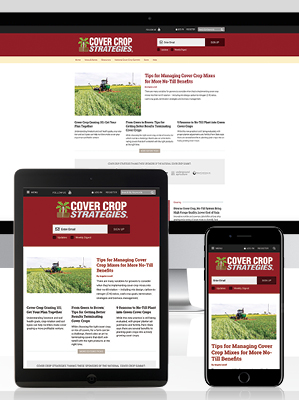Soil Health
[Podcast] Every Drop of Water Counts
This week’s podcast, sponsored by NewLeaf Symbiotics, features Anthony Bly, Soils Field Specialist with South Dakota State University.
Read More
[Podcast] Look for Signs of Soil Biology as Winter Approaches
This week’s podcast, sponsored by GS3 Quality Seed, features Jamie Patton, Senior Outreach Specialist, Nutrient & Pest Management, University of Wisconsin. Patton will discuss what soil health going into winter, why growers should invest in soil testing, when to conduct soil testing and more.
Read More



